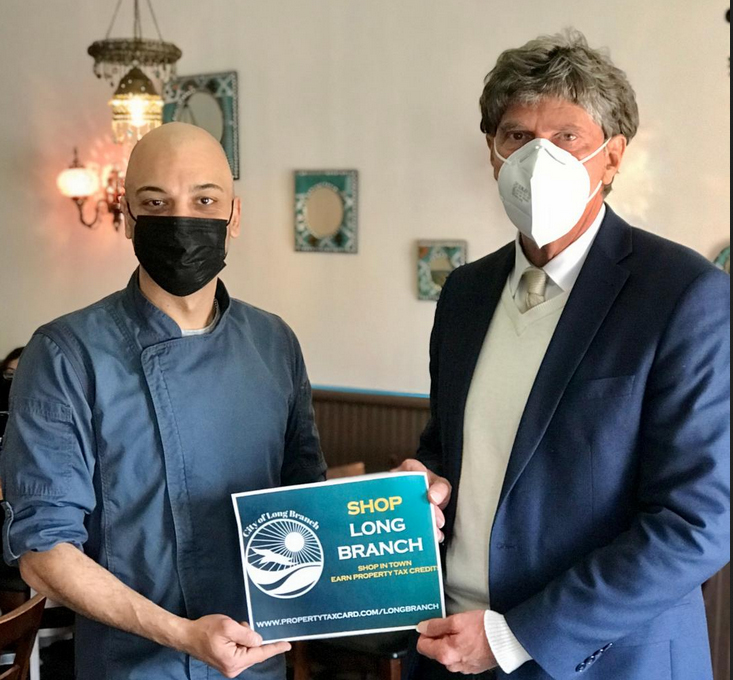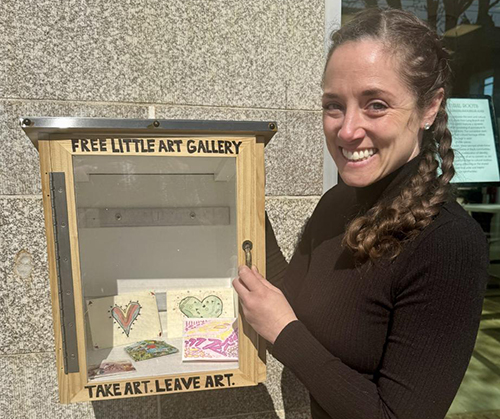
Anstuna Grill, new Middle Eastern food restaruant opens in West End
April 25, 2021
Office nets first statewide forfeiture of cryptocurrency
April 26, 2021 By Vin Gopal, Eric Houghtaling and Joann Downey
By Vin Gopal, Eric Houghtaling and Joann Downey
As we heal from a year of COVID-19, a contentious election, and social protests, we must all strive to achieve equity by being more accepting of each other to ensure that everyone is part of the nation’s healing process.
The pandemic pushed all of us into some level of isolation and it put a spotlight on the equity gap between segments of our society. This has been especially true for people suffering mental illness and residents with developmental and intellectual disabilities. To truly heal and move forward, we must close the equity gap for these vulnerable individuals.
We have sponsored legislation that would provide a one-stop website of resources to assist people navigating the state’s mental health and substance use disorder service systems. It would bring together the expertise and resources of the state Office of Information Technology, the Division of Mental Health and Addiction Services in the Department of Human Services, the Departments of Health, and Children and Families.
We sponsored legislation to allow out-of-state medical professionals to provide telemedicine and telehealth to people who live here. It complements another piece of our legislation that the Assembly and the Senate have passed to ensure mental healthcare providers are fairly reimbursed for telehealth visits.
The availability of telehealth enabled mental healthcare providers to respond to the increased demand for mental and behavioral health services during the pandemic. Our legislation would ensure that benefits plans – Medicaid, NJ FamilyCare, the State Health Benefits Program (SHBP) and School Employees’ Health Benefits Program (SEHBP) – reimburse healthcare providers for telemedicine at the same rates as in-person visits.
We also are pressing to include funding in the state budget to expand Early Intervention Support Services (EISS) to all counties. EISS enables people to meet with a therapist within 24 hours of referral and an advanced practice nurse (APN) for medication evaluation within 48 hours.
We have sponsored two pieces of legislation to speed up response time to people with disabilities who also face both mental and behavioral health challenges. One piece would appropriate $2.5 million to fund the “Behavioral Health Crisis Mobile Response Act” that brings health services to those who are unable to visit a health professional’s office. It also would bring multiple state departments and their resources together in creating a system for immediate crisis response to adults with intellectual and developmental disabilities and mental illness who are in crisis.
The other measure would require the state Department of Human Services to establish a five-year pilot program to coordinate systemic, therapeutic, assessment, resource, and treatment (START) services to adults with both developmental disabilities and mental illness. The pilot program would use crisis planning methods and coordinate various services in the healthcare system to help eligible adults living at home avoid institutionalization and maintain their community-based residence.
We believe these initiatives will help our state heal by building more inclusive communities that are stronger because everyone is represented. But we also know that societal change doesn’t happen from legislation alone. It comes when each of us look deeper into our own hearts and commit to being more open, inclusive and more equitable people.
Let’s embrace healing and move on with open hearts.
Stay safe.




